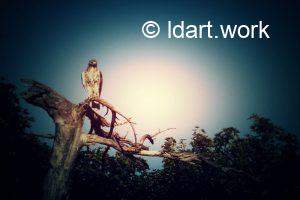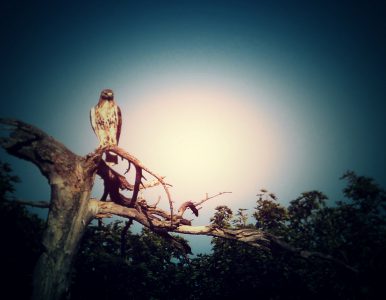
Does security threaten freedom?
A dialogue between Peter the hawk and Davina the goose. Peter believes that animals are equal to humans and that mutual aid is necessary. Davina is a frequent traveler who says knowledge and morals are learned with experience.
Davina: Peter, the story I’m bringing you today is from Taiwan.
Peter: off China, right?
Davina: yes, indeed. The government there made a decision that will undoubtedly have effects in much of Asia because it has banned the consumption of dogs and cats.
Peter: it’s good meat, thought.
Davina: dear Peter, have you ever thought about becoming a vegetarian?
Peter: with the beak I have ?! How would I go about eating herbs or vegetables!
Davina: you’re right, I got carried away by my preferences. In any case, in Taiwan, as cats and dogs are more and more often pets, they are not considered as they were before.
Peter: I see. So if geese and ducks became pets, there would be no more foie gras?
Davina: Peter, your association of ideas is very tactful today!
Peter: don’t worry, you are a wild goose, you don’t risk anything.
Davina: I risk a gunshot like you I suppose but you are right, the domestic species are not much like us. They were forced to give up their freedom.
Peter: in exchange for food and safety. At first glance, it seems that there are some advantages.
Davina: if they had voluntarily decided to give up their freedom, we could congratulate them but this is not the case.
Peter: whether they are food animals or pets, cats and dogs will remain slaves dependent on the goodwill of their masters, forced to please them and probably unable to survive on their own. Putting that aside, this law seems to increase the rest of their well-being.
Davina: because by being protected, they become privileged?
Peter: yes, their prison is more pleasant even if it remains a prison. Have you seen the dogs passing by? Always on a leash, some dressed as children! They are animals that have nothing to say about the conditions of their existence so give them a favor and they like it.
Davina: it’s true, I pity them like those obese cats unable to reproduce that we sometimes see!
Peter: the question that arises it’s whether they can be truly happy.
Davina: when you know nothing but a secure existence, more security with better conditions seems like progress, I would guess.
Peter: so what about us who know nothing but the wild life that we have not chosen? Do we like it by default?
Davina: yes, we are prisoners of our destiny like those cats and dogs and we love what we call freedom because that’s what we have.
Peter: yet life in a cage wouldn’t please us even if it is sure that we lack security and even food sometimes.
Davina: so, if freedom is in the feeling we have about our condition and if we suddenly see our condition improving, do you think we would feel freer?
Peter: we would be freer to devote oneself to things that were impossible before. For example, we could fly for the pleasure of discovering new places if we weren’t constantly required to find something to eat.
Davina: yet this obligation is also our freedom because it means that we only depend on our skill to survive.
Peter: as long as we have the means to do it, which explains why for some, security is a blessing that reduces their worries or compensates for their weaknesses.
Davina: it follows that in either case, freedom is not given and security has to be paid for. It is in fact the idea of the Social Contract which allows humans to live in organized and civilized societies.
Peter: and it is therefore a good thing that this contract was extended to these cats and these dogs because they are part of this society and need to be protected. This increases their overall satisfaction and that of the majority of their masters.
Davina: yes, released into the wild, it wouldn’t have improved their situation. As for us, locked in an enclosure, we would certainly be safer but certainly unhappy too.
Analysis
What are the relationships between security and freedom?
For Davina, security and freedom are not incompatible but are declined differently depending on the circumstances because protecting freedom or protecting the individual are not the same things. In the first case, more freedom leads to less security and therefore paradoxically, more constraints to survive. In the second case, more security can promote more freedom but within a well-defined framework that must be accepted at the outset. This is the idea of the Social Contract.
For Peter, it is about knowing what ensures the most benefits to the greatest number: if freedom is the priority, then security will lower satisfaction even if it brings benefits. If security is sought after or essential, then more security will increase the impression of freedom and therefore general satisfaction.
Possible discussions
Why can we say that giving up freedom is also gaining it?
How does constraint define freedom, and vice versa?
Finally
Want to think a little more? See, for example, The Social Contract where Rousseau explains that when you give up your natural freedom to form a society, it guarantees everyone a protected freedom.
Want to contribute to these dialogues? Write your comments and questions below.
Want to know more about the tastes of Peter and Davina? Their favorite books are in the domain library.

